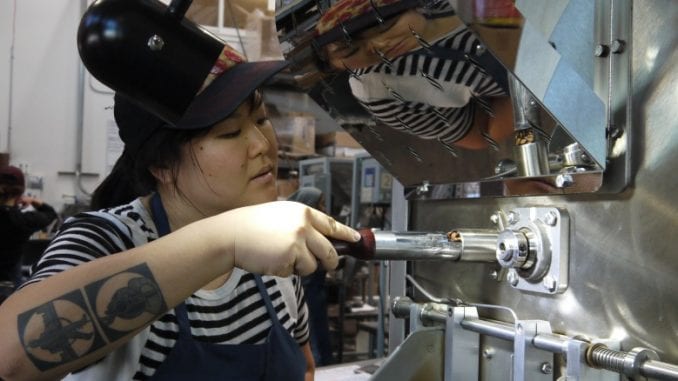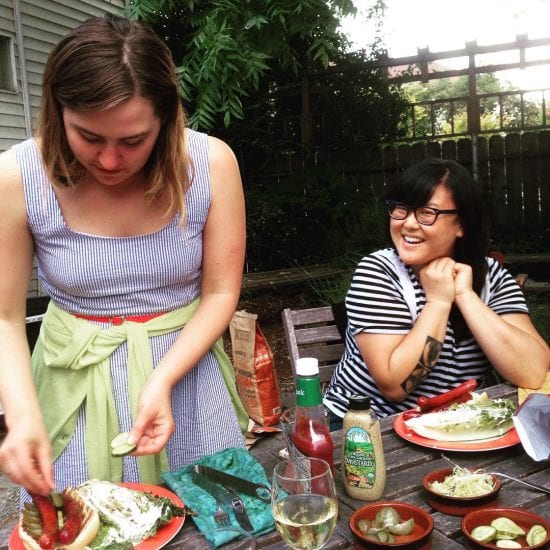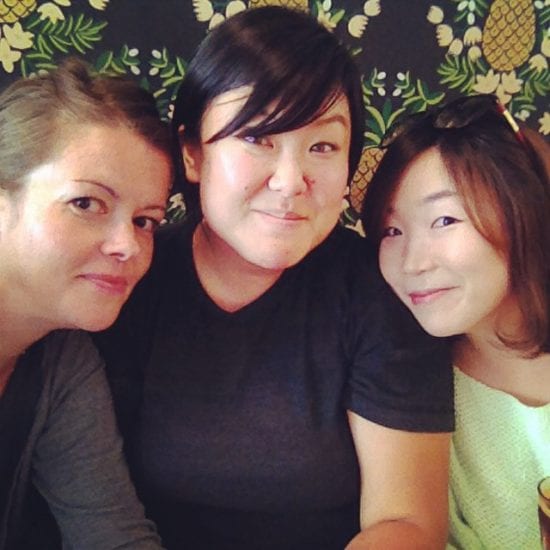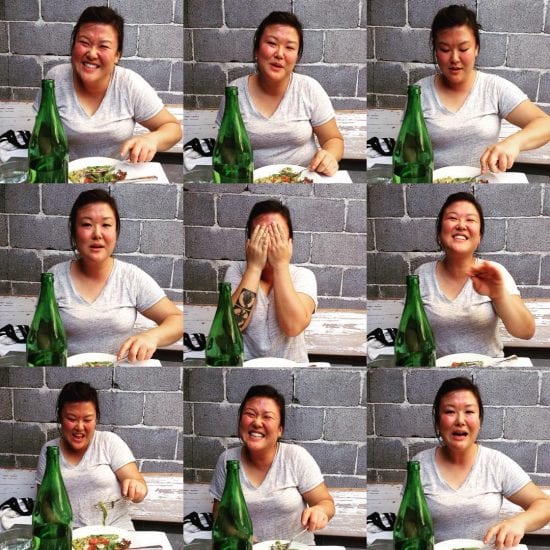
Juliet Han studied music before she landed in coffee, finding herself at the infamous murky coffee in Washington, D.C. Now the head roaster for Blue Bottle, Juliet talks to us about her music background, how she got into coffee, and her goals for the future.
BY ASHLEY RODRIGUEZ
BARISTA MAGAZINE ONLINE
Featured photo courtesy of Juliet Han
Ashley Rodriguez: Tell us about your life pre-coffee. Where are you from? What did you think you were going to do before you started in coffee?
Juliet Han: Juliet pre-coffee was on a very academic route, which, funny enough, I’m back on in present time. (I’m a part-time student taking a bunch of science and math courses to apply for a Food Science graduate program). I grew up an hour east of Los Angeles, also known as the “IE” (Inland Empire).
Pre-coffee, I wanted to work in the music industry. Not as a musician (I studied music in college and was a band geek since elementary school, but had a fear of performing in front of people), but wanted to work in music policy. I worked at music venues for years (I was a bouncer as well as a merch girl), and played with the idea of law school. After working for a few years at a desk job at a music royalty agency, I burned out because I thought the industry was corrupt.

AR: How did your coffee career begin?
JH: My first coffee job was at murky coffee in Washington, D.C., in 2004. I moved to D.C. to take an internship and stayed for five years after graduating. I’d read about Dischord Records and fell in love with the DIY punk movement, and decided D.C. was the future of music. D.C. is also an expensive place to live, so I applied at murky as a second job after it became my favorite place to go. I was just learning to drink coffee. murky coffee was a magical place; I met some of my closest friends there (co-workers and customers), started developing a palate for coffee, and quickly learned that I needed a job where I was on my feet and had a sense of urgency, which is really important when it comes to working in production (roasting). They helped create a specialty-coffee scene there and I found my community.

AR: Being the lead roaster of a big company seems like a lot of responsibility. What does your day-to-day look like?
JH: It is a big responsibility but also really fun! Blue Bottle is a very collaborative company; when we release a new coffee, it goes through many departments such as green buying, QC, communications/marketing, trainers, baristas, and then of course production and roasting. A big chunk of my job includes training apprentice roasters from the ground up (the most rewarding and challenging part of my job) and communicating with QC and roasters about coffee profiles. Recently, both our N.Y. and L.A. locations switched their roast machines to Loring Kestrels, so it’s been great to be able to discuss roasts and coffees on a more similar level.
AR: You studied music in college—do you see parallels in coffee and music?
JH: There are a lot of musicians in our industry! I think studying music helped me learn to notice small details, which I find very helpful in my current job roasting. It also helped discipline me in using my senses, even though they are not the same ones at times.

AR: Who are the people you look up to in coffee?
JH: Trish Rothgeb (Wrecking Ball Coffee, former Director of Q for CQI, overall badass), Sara Morrocchi of Vuna Origin Consulting, and Charlie Habegger (Blue Bottle’s Green Coffee Buyer). They are people who are leaders I admire and aspire to be, who aren’t afraid to ask questions, and always put the integrity of coffee (which is coffee people) first.
AR: What does a day off look like for you? What makes you happy and how do you indulge?
JH: Lately I’m into long walks—this can mean hiking right outside the Bay Area or to the next part of town. If I’m not studying or reading, it’s hanging out with the people I really care about, whether it’s couch time or over a great meal. Being really busy with school (which can be a pretty antisocial hobby) makes sure I never take my friends and family for granted, and every minute being with them counts.

AR: Where do you draw inspiration? How do you reset and focus?
JH: I came back from Re;co this year just so inspired. It was my first time going and it was very science-heavy. I am in the beginning stages of learning the world of science and I find it truly inspiring, but at the same time exhausting (in a good way), as it leaves me with more questions about coffee. If I’m not working, I am usually studying. I’m a worrier and it’s hard to shut off the brain at times, so focusing for me is being in the moment. Whether I am roasting or cupping, I try to focus on what is in front of me at the moment and think of nothing else. Sounds simple, but it’s hard to do. Same goes with when I’m in school … but that practice has helped me become a confident cupper and become a better roaster. Otherwise, reading books is my reset. I need to lose myself in a story or another topic.
AR: What is important to you in coffee?
JH: In my daily tasks, it’s important for me that we are roasting our coffees to their best potential (if it’s a blender, then it is the best version of that flavor profile, if it’s a single origin, then the best-tasting version of that coffee). For the bigger picture, pursuing school part-time and wanting to study food science, the question I ask myself is how will I participate in helping to preserve the future of specialty coffee with science? How can we become more sustainable, and how can science help with that? I don’t have the answers yet, but hopefully I will get closer to finding what that means for me in the coming years.

